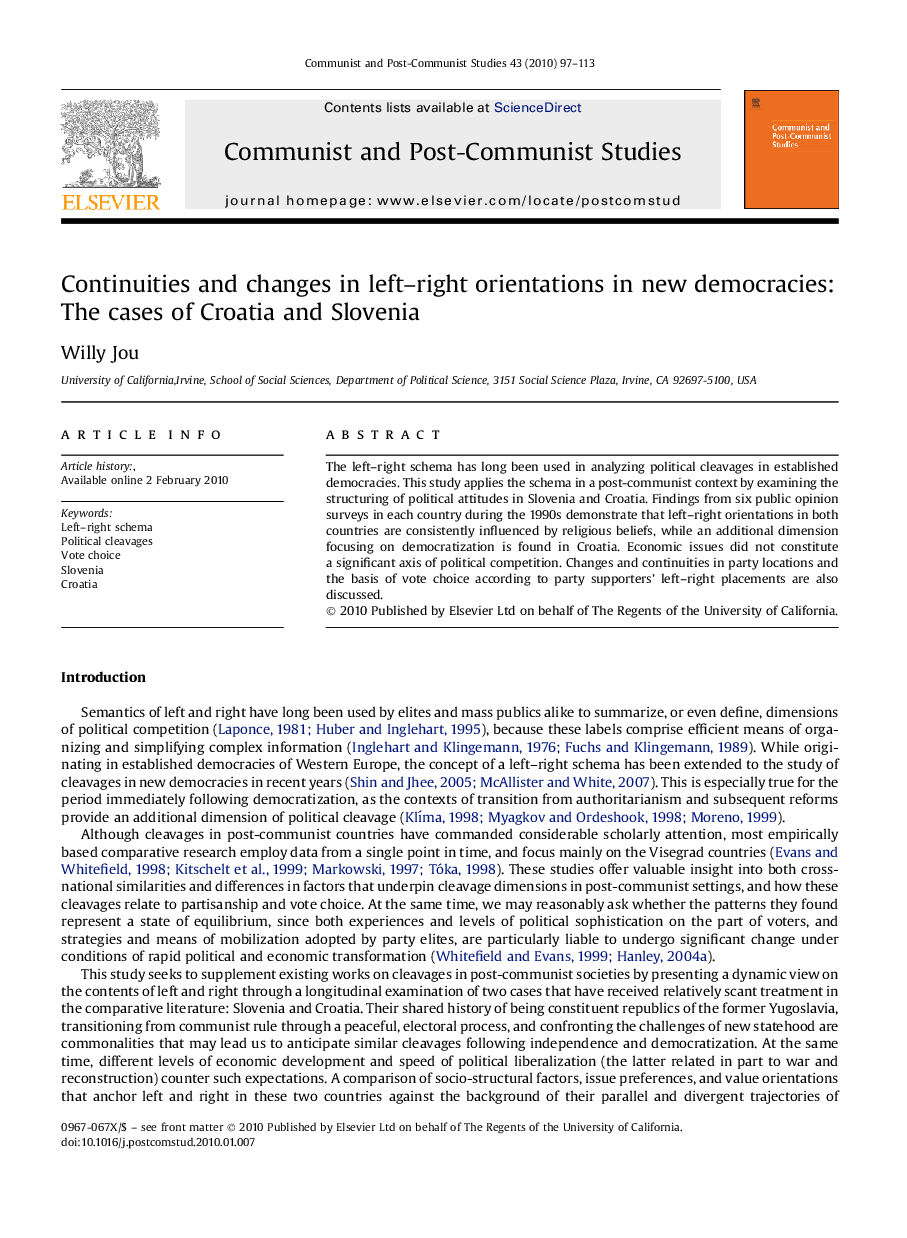| Article ID | Journal | Published Year | Pages | File Type |
|---|---|---|---|---|
| 1046591 | Communist and Post-Communist Studies | 2010 | 17 Pages |
Abstract
The left–right schema has long been used in analyzing political cleavages in established democracies. This study applies the schema in a post-communist context by examining the structuring of political attitudes in Slovenia and Croatia. Findings from six public opinion surveys in each country during the 1990s demonstrate that left–right orientations in both countries are consistently influenced by religious beliefs, while an additional dimension focusing on democratization is found in Croatia. Economic issues did not constitute a significant axis of political competition. Changes and continuities in party locations and the basis of vote choice according to party supporters' left–right placements are also discussed.
Related Topics
Social Sciences and Humanities
Social Sciences
Development
Authors
Willy Jou,
